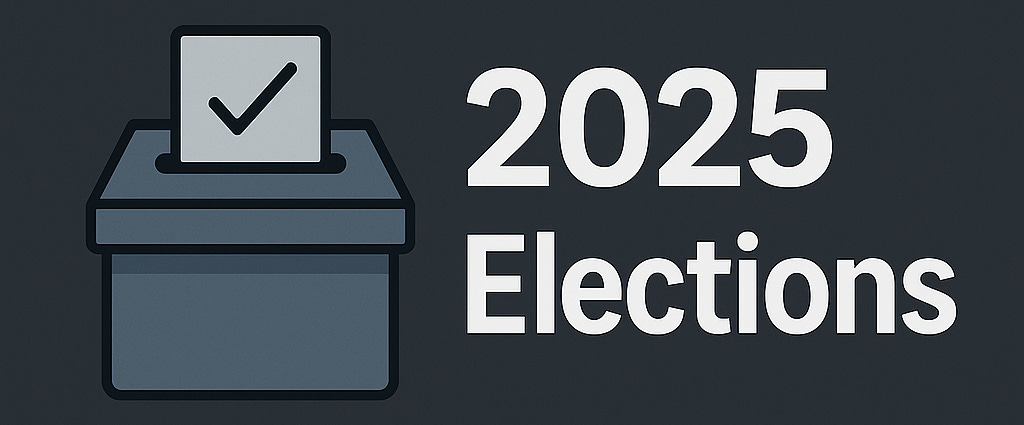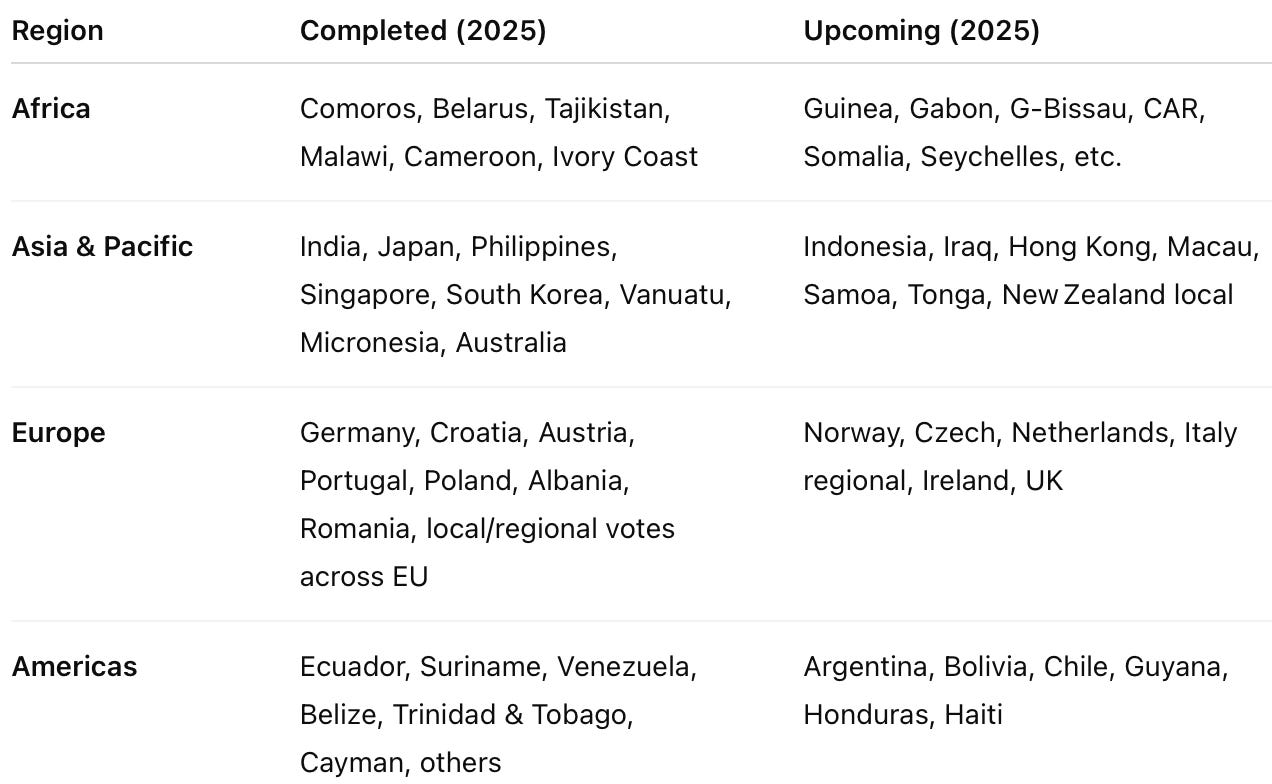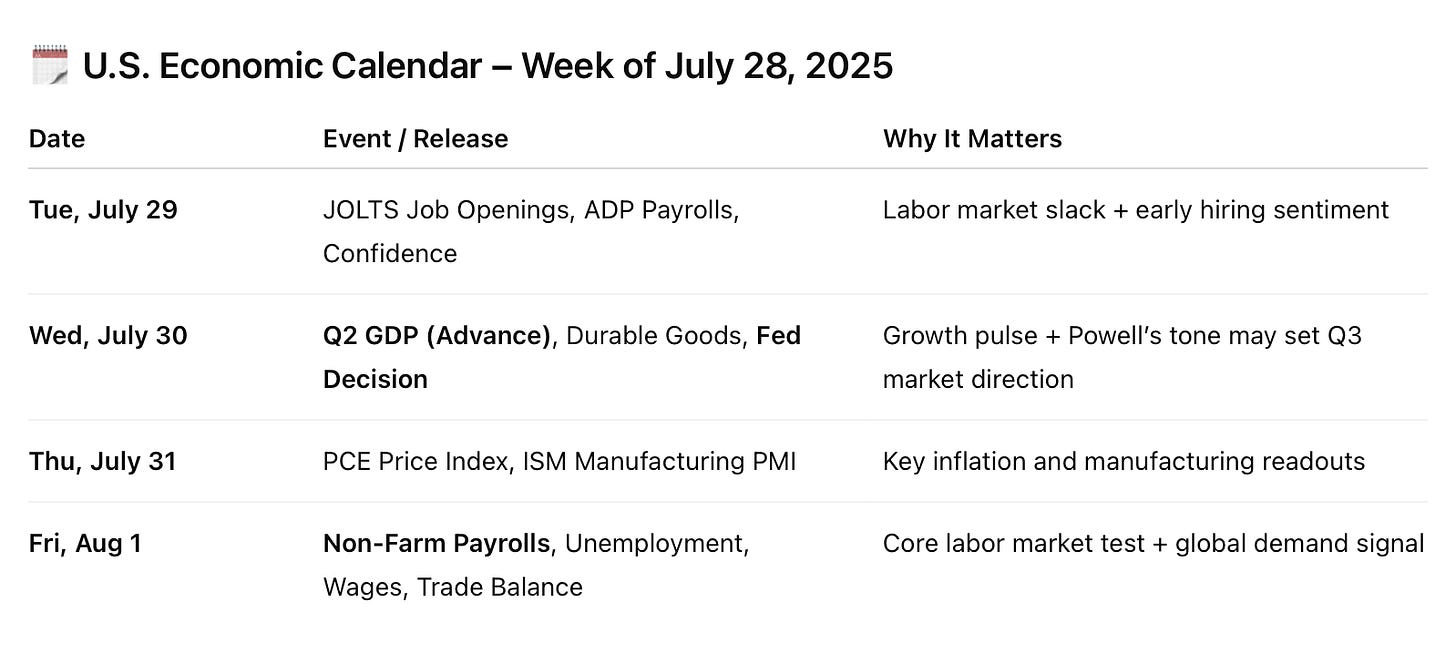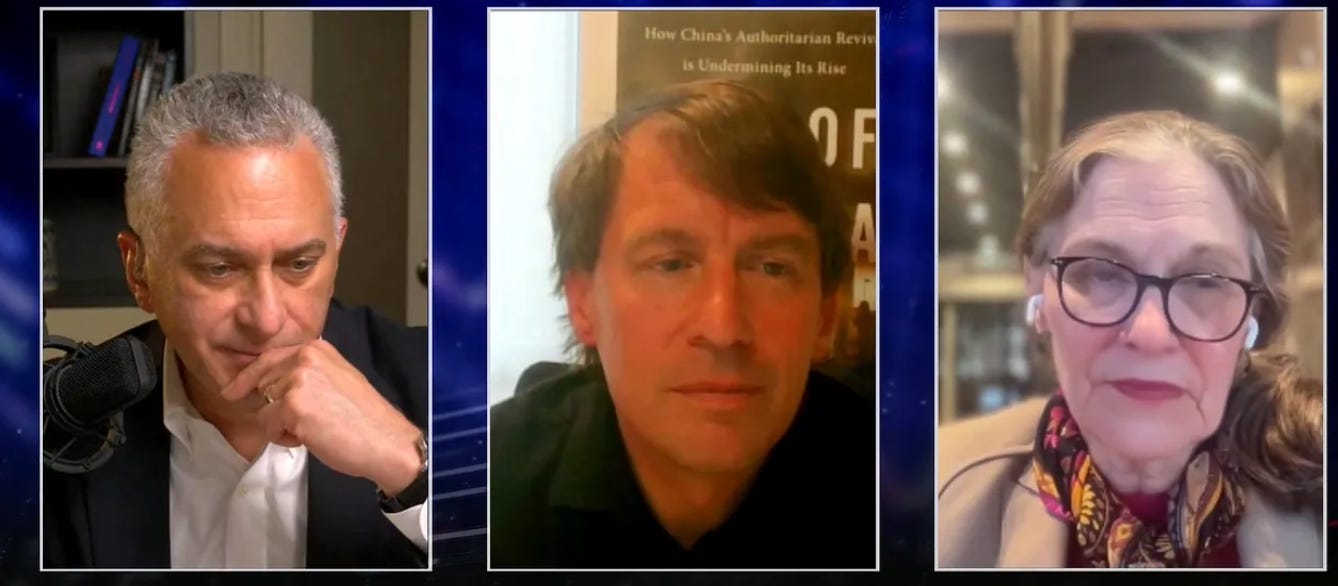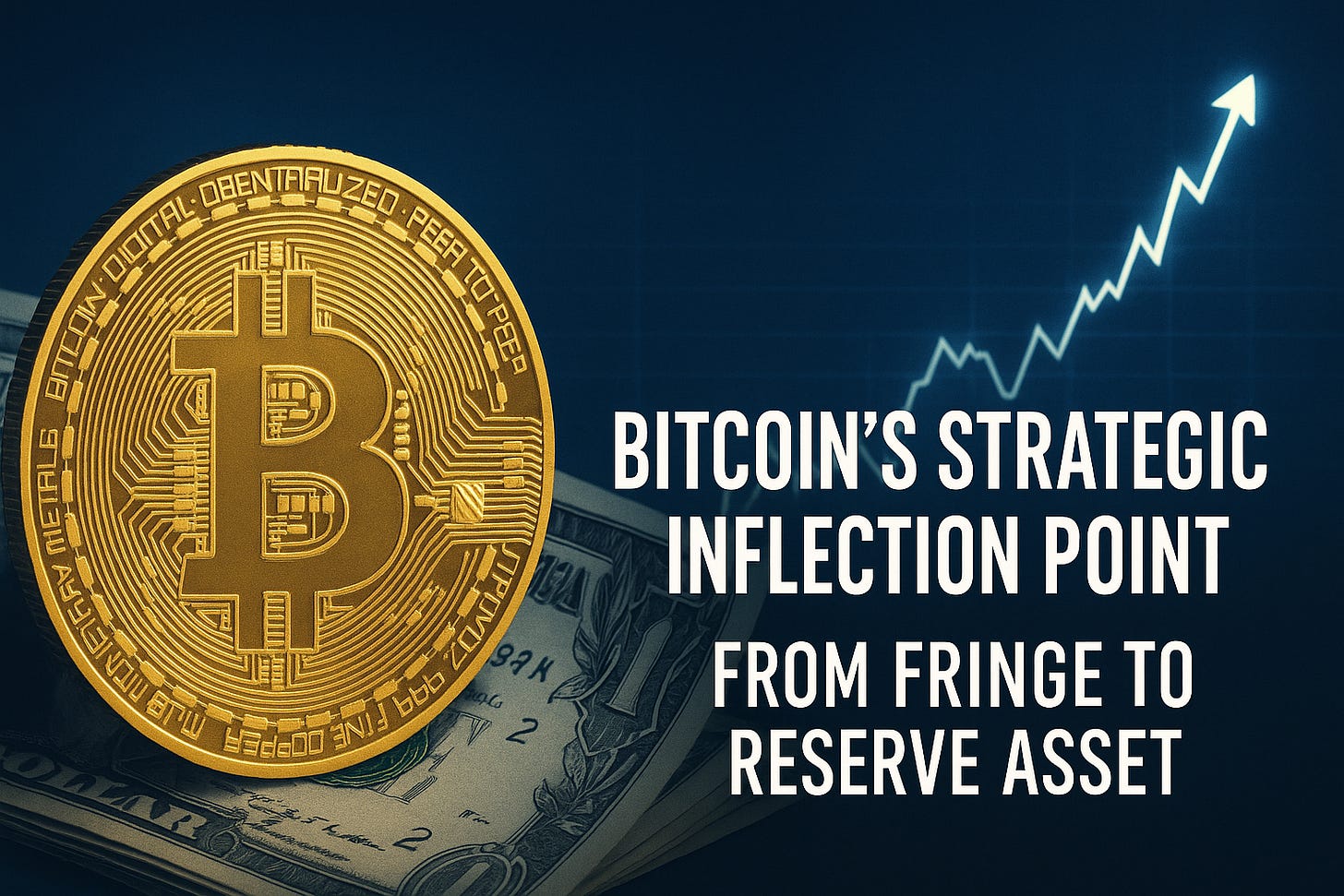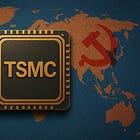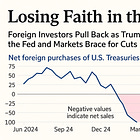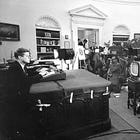↪re: The End of Uncertainty?
"History is a race between education and catastrophe." H.G. Wells
→ econVuere:Vue ↪ Jul 27, 2025
At the beginning of this year, policy uncertainty was at its peak: a new (or returning) US president had taken office, and elections had just been held around the world. Following on a wave of contests this year and in 2024, the key races are now mostly over. Over the past six months, the policy direction of the Trump administration has become increasingly clear, shaped by Treasury Secretary Scott Bessent and Secretary of State Marco Rubio.
Today, President Trump and EU President Ursula von der Leyen announced a new trade deal at his luxury golf course in Scotland—literally on his own turf— averting a possible tariff war. Secretary Bessent is scheduled to meet with Vice-Premier He Lifeng in Stockholm on Monday, followed by a possible Trump-Xi summit in October. Deals have continued to flow with trading partners around the world, including Japan and Australia (show me the beef!). Companies are adjusting. Markets are surging. Tariffs have become a more-or-less predictable seesaw.
However, clarity at the top does not necessarily translate to stability at lower altitudes. According to FINRA, margin debt has exceeded a record $1 trillion. Auto loan delinquencies are trending upward—with Gen Z and millennial car owners leading the pack. This highly consequential week, we will see a slew of economic data releases, and of course, the Fed will decide on interest rates on Wednesday. Could we see the first signs of a downturn in the US economy?
If so, it is a good thing that Trump and Powell are speaking. I am not sure how this happened, but getting builder Trump to the Fed construction site for their meeting last week was an act of political genius. Afterward, the President urged Powell to see the multi-billion-dollar through, tweeting, “It is what it is”. My only question: will the new annex be named for Powell, or for the man who green-lit its completion?
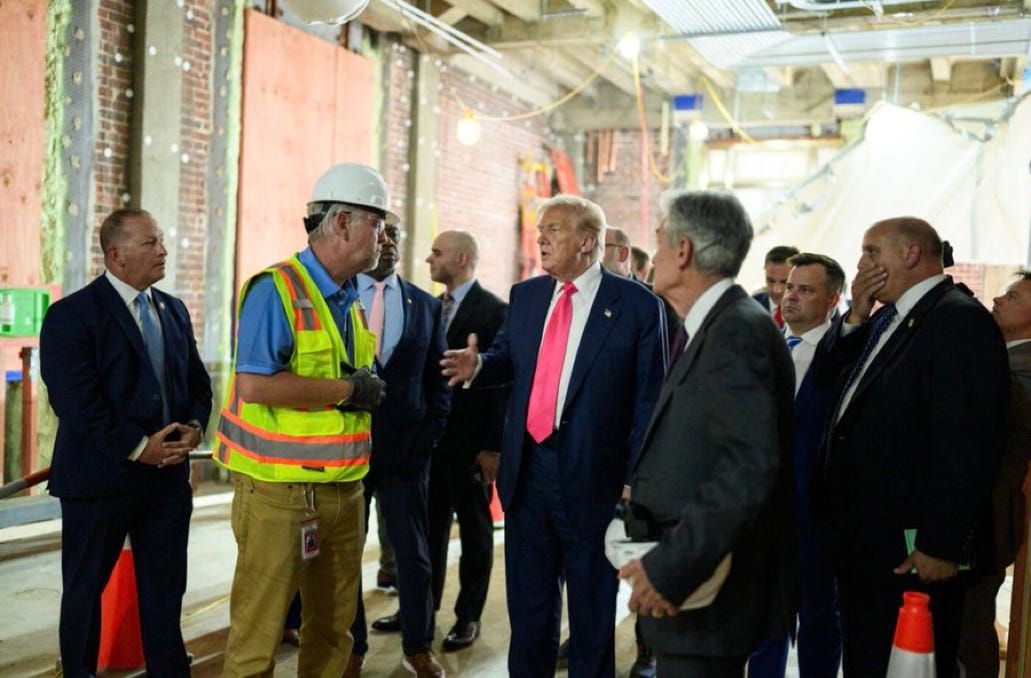
Other issues linger, tempering optimism. The Middle East, and Ukraine continue to grind out their differences on the battlefield. I originally thought that both wars would be over by this time, but the implacable nature of the adversaries has made that incredibly difficult to achieve. The threat to Taiwan from China, and the possibility of a North Korean meltdown, have not receded. The upcoming annual seaside meetings at Beidaihe, attended by senior Chinese government leadership, will soon clarify some of these issues. I will be writing more about this key event, and ongoing tensions with the US.
Technological competition between China and the US is increasing. It seems that Nvidia’s Jensen Huang has replaced Elon Musk as the Chinese conduit to the White House. A billion dollars’ worth of advanced Nvidia chips were smuggled into China, muddying the battle lines. Meanwhile, here in Chicago, a new alliance is building a world-class quantum computer research center, and AI is accelerating across many sectors. Cryptocurrencies are also in a bull market following rapid regulatory adoption in the US, which China will lose out on since they have banned private ownership.
I also noted this week that in tests conducted by official Chinese media Tesla’s self-driving systems were judged far superior to domestic Chinese brands—in spite of the fact that Tesla is handicapped by the inability to export data. It is also possible that recent claims that China is far ahead of the US in technology are overstated—and not made by technology experts.
The policy changes to watch in China will be structural reforms to its economy. A new law, adopted in June, significantly revises the Anti‑Unfair Competition Law to curb “involution‑style” or hyper-competition between provinces and industries—a game changer. Could the floodgates to reform finally be opening?
What’s Next?
Please mark your calendars for our next panel on Wednesday morning, July 30th at 10 am Chicago time, to discuss the economic impact of recent political changes in the Asia-Pacific region. Registration details can be found at the end of this email.
To help our readers stay abreast of developing trends and breaking events, econVue publishes re:Vue, a monthly digest of our most recent articles, contributor Vuepoints, The Hale Report podcast, and panels on critical topics. In case you have missed some of our content over the past several weeks, here is what we’ve covered, and what we’re watching next.
–𝓁𝓎𝓇𝒾𝒸 💬
Editor-in-Chief
re:Vue is all our content condensed into one convenient, unobtrusive monthly e-mail. You can select exactly which econVue newsletters you receive or omit, including this one, at any time in your econVue account..: Stories in ↪ re:Vue
↪: Now on econVue
1.:
🎧 THE HALE REPORT™ ⸱ Episode 70
George DeMartino—The Ethical Tragedy of Economics→
Hosted by Lyric Hughes Hale ⸱ JUL 17, 2025
As economists continue to shape the world without a professional oath or code of conduct, George DeMartino warns of a mounting ethical crisis in the field. In an age of AI, inequality, and global economic experimentation, restoring ethics to economics may be the most urgent reform of all.
2.:
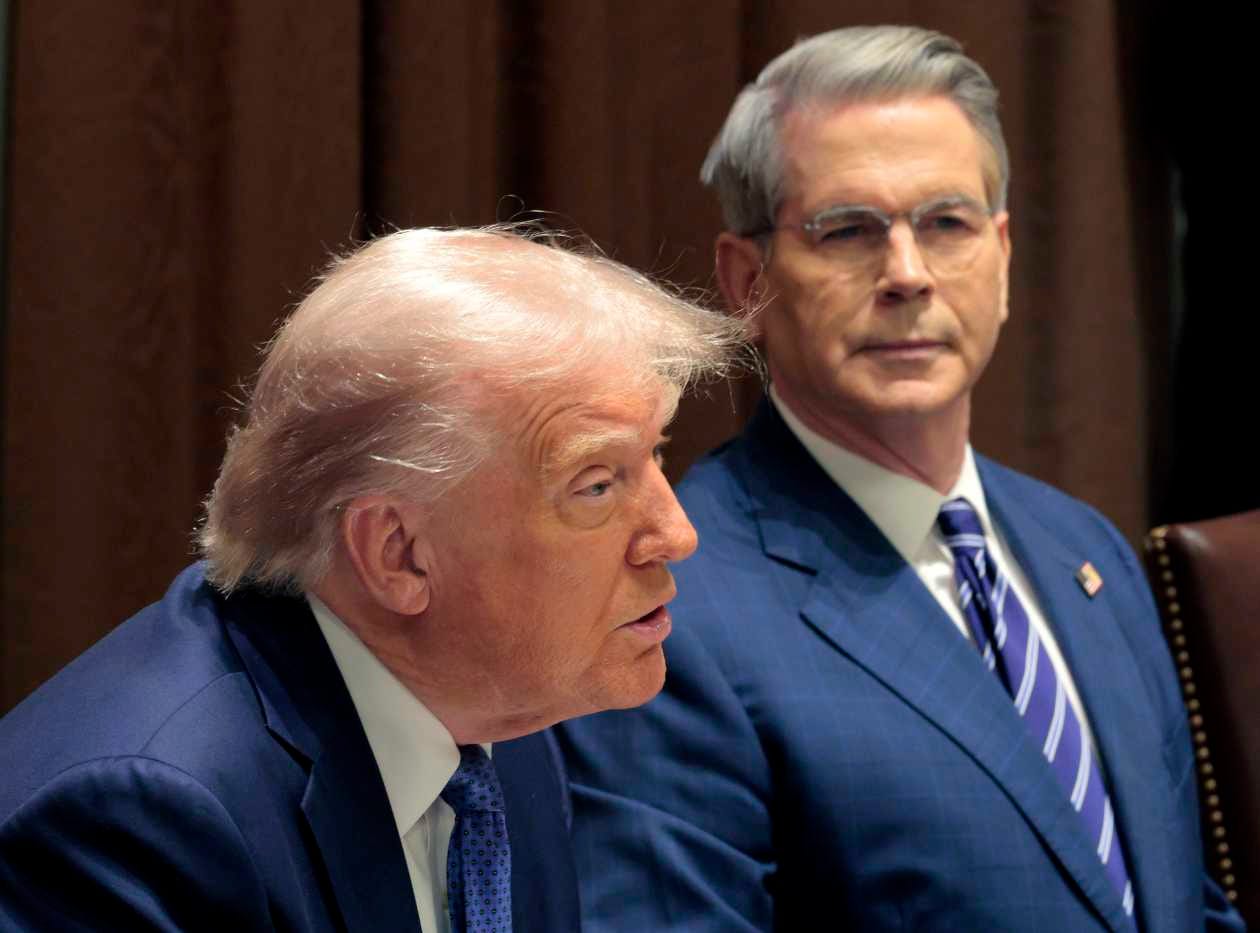
👥 PANELS
In a World at Risk (audio replay)
FRI, JUL 9th @ 3 pm CDT
Panelists
Special guests: Gordon Parrish, Joel Ross, Michele Wucker
Moderated by Lyric Hughes Hale
This discussion revealed that while the U.S. economy shows remarkable strength, underlying risks—from eroding trust to geopolitical flashpoints—threaten to upend the fragile balance. From Bitcoin’s rise as a “trustless” asset to speculation over Trump’s next Fed Chair pick, the panel underscored: signals of instability may already be flashing.
3.:
👥 PANELS
All Options on the Table
MON, JUN 16 @ 4 pm CDT
Panelists
Moderated by Lyric Hughes Hale
This discussion revealed that while markets remain calm, underlying risks—from energy supply shocks to accidental escalation—threaten to upend the fragile balance in the Middle East. From China’s quiet influence in the region to skepticism about regime change in Iran, the panel underscored: even small missteps could trigger global disruption.
↪: Latest articles
4.:
§ Conflict
From fringe to reserve asset
LYRIC HUGHES HALE ⸱ JUN 22, 2025
As the US launched airstrikes on Iran’s nuclear facilities, the Middle East crisis has deepened—but the trajectory of America’s China strategy remains critical. War in the Middle East and peace in the Asia-Pacific are inseparable issues. Lyric Hughes Hale and Carl Minzer were hosted by the Strategic Investor Conference to discuss China, moderated by Ed D’Agostino. Video included, courtesy of John Mauldin Economics.
5.:
§ Tech & AI
Bitcoin’s Strategic Inflection Point →
From fringe to reserve asset
ERIC HUANG ⸱ JUL 14, 2025
In the currency wars of the 21st century, is Bitcoin the ultimate hedge—or the next geopolitical flashpoint? Can it remain neutral as nations race to weaponize finance? What makes this moment different isn’t just price—it’s position. Bitcoin is no longer speculative—it is becoming strategic.
6.:
Policy & Micro
Funding warfare and welfare in a fragmenting world
LYRIC HUGHES HALE ⸱ JUL 1, 2025
As aging populations and rising defense costs collide, can fragile tax systems still fund both warfare and welfare with created a global debt crisis?
↪:🖊️ VUE⫶𝓹𝓸𝓲𝓷𝓽𝓼
7.:
8
.:
9.:
10.:
📌 Notes
11: ⤵
12: ⤵
13: ⤵
14: ⤵
15: ⤵
❗Reminder to Paid Subscribers: Invitation to Register
👥 Upcoming Panel
🗓 Wednesday, July 30, 2025 · 10:00 AM CDT · Live on Zoom
Keep reading with a 7-day free trial
Subscribe to econVue to keep reading this post and get 7 days of free access to the full post archives.



